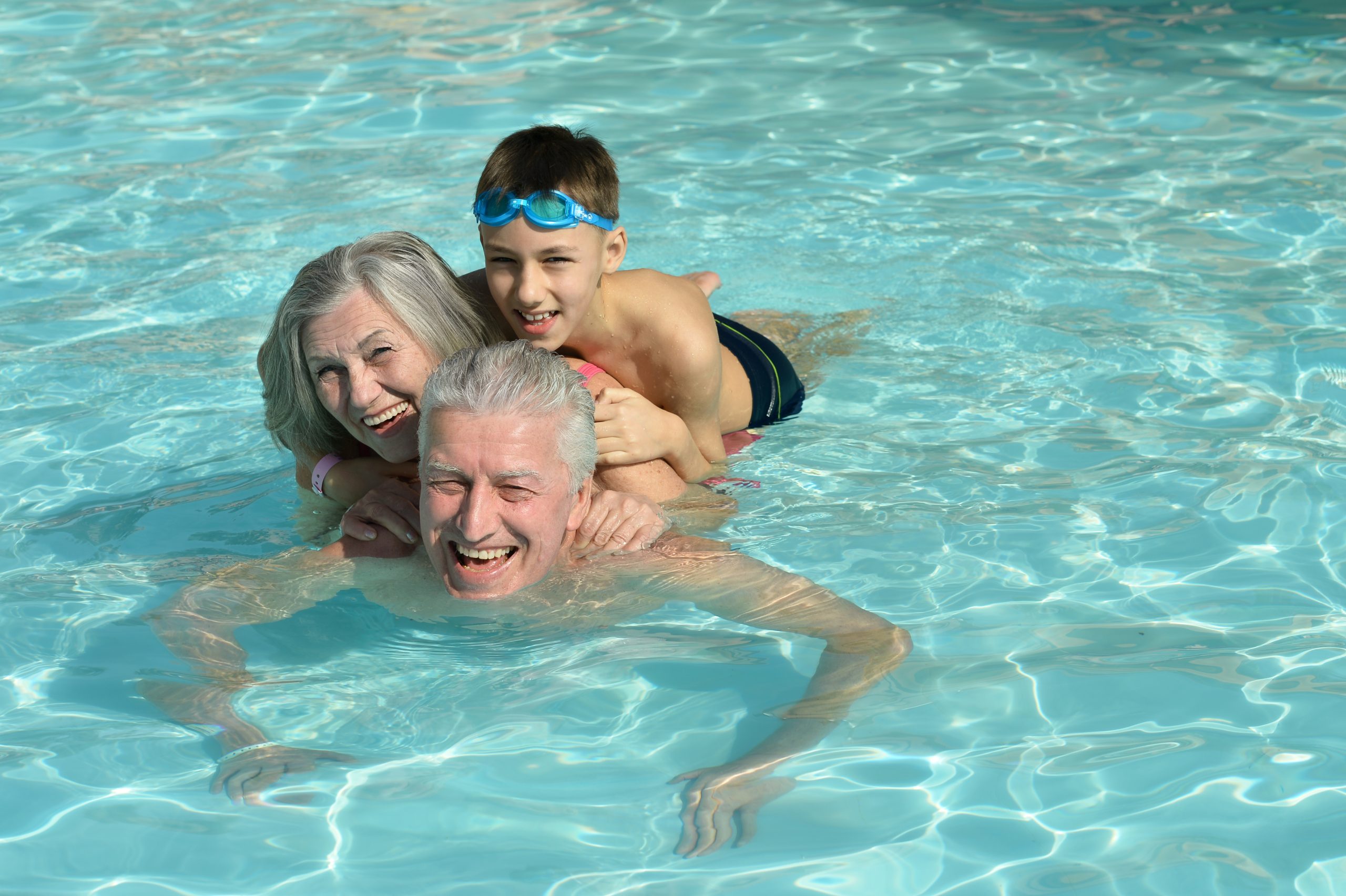Swimming is widely seen as one of the best all-around forms of exercise you can do. Its long-impact nature makes it ideal for achy joints and muscles but vigorous enough to keep the heart rate up, helping to improve cardiovascular health, build endurance, and strengthen muscles.
Swimming is also one of the few forms of exercise accessible to almost anybody, with unique health benefits for every generation. From toddlers to the elderly, swimming is not only a skill that can save lives but also a leisure activity that can dramatically enhance physical and mental health, social interaction, and overall well-being.
Swimming – Good for All Ages
There’s rarely a one-size-fits-all in life. The human body is varied and incredibly complex; what suits one person may not be ideal for another. Swimming, however, gets pretty close.
The low-impact, high-reward exercise you get from swimming is suitable for all ages and doesn’t discriminate against age, skill level, or physical ability. You may swim like a rocket-propelled torpedo or a graceful turtle meandering slowly through the water – it doesn’t really matter. Swimming is great, no matter how you do it – though we do, of course, believe in good technique so you get the most out of this skill.
The buoyancy of water supports the body, reduces stress on joints, and provides resistance that aids in muscle strengthening and cardiovascular fitness. Whether you’re two or ninety-two, swimming brings countless health benefits.
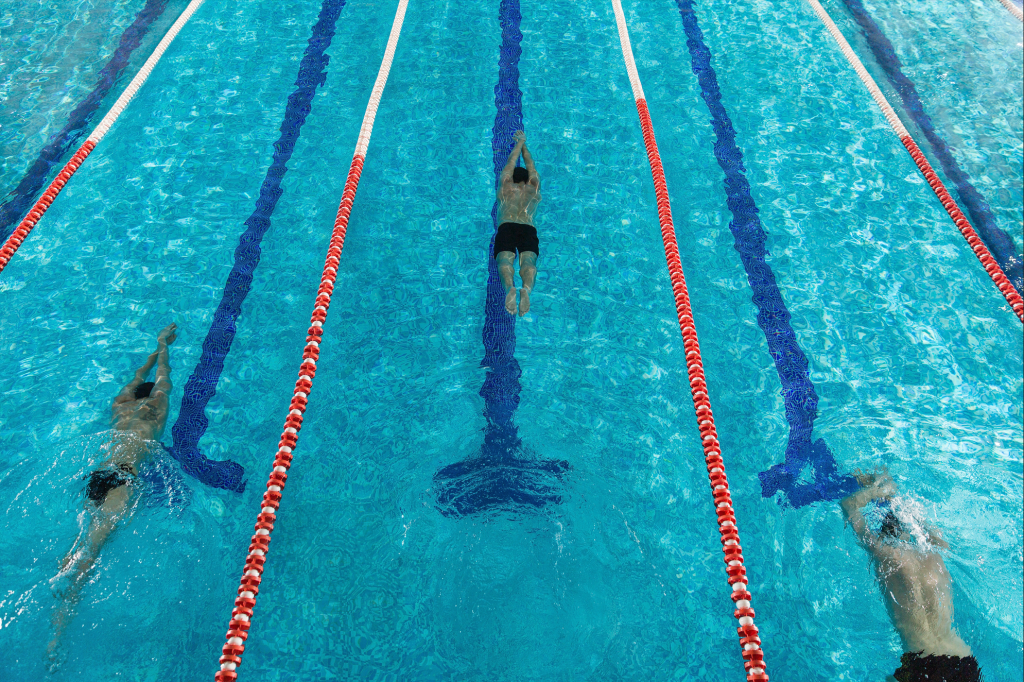
Toddlers
Toddlers love the water, and introducing them to it early is a great way to develop early motor skills, enhance coordination, and instil a love for physical activity. It also helps to build water confidence and teaches them those fundamental safety skills at a young age.
Swimming also provides a sensory experience that stimulates brain development, and this is perhaps the most important factor. It’s not so much the act of swimming, per se, but rather about developing a range of skills and movements that benefit their overall growth.
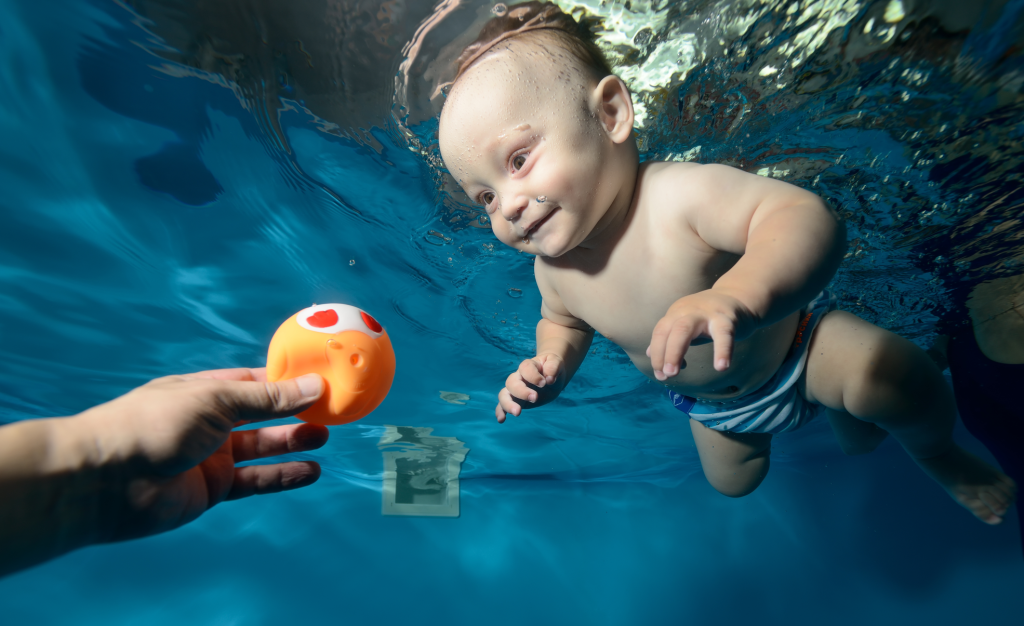
Children
As children grow, swimming becomes an excellent way to improve physical health, develop social skills with others in the pool, and begin to expand their water safety knowledge. Swimming is great for promoting heart and lung health, improving strength and flexibility, and contributing to maintaining a healthy weight.
This is also where swimming as a social occasion really becomes apparent. Children adore being in the water, but playing with others and sharing the experience is what really makes them beam with happiness. Ever seen a full-on temper tantrum as a parent tries to drag their child out of the pool? Of course you have – we all have; the more a child is encouraged to step out of their comfort zone at a young age, the better equipped they become in managing such emotions. Children who have been swimming from a young age love it, but it’s not just about splashing around in the pool. Swimming, and particularly swimming classes, offer a social environment where children can interact with their peers, learn about safety, develop a sense of belonging and achievement, and have a wonderful time while doing it. When a child completes their first 10-metre swim unaided and gets a badge, the look on their face tells you everything you need to know about how important this is.
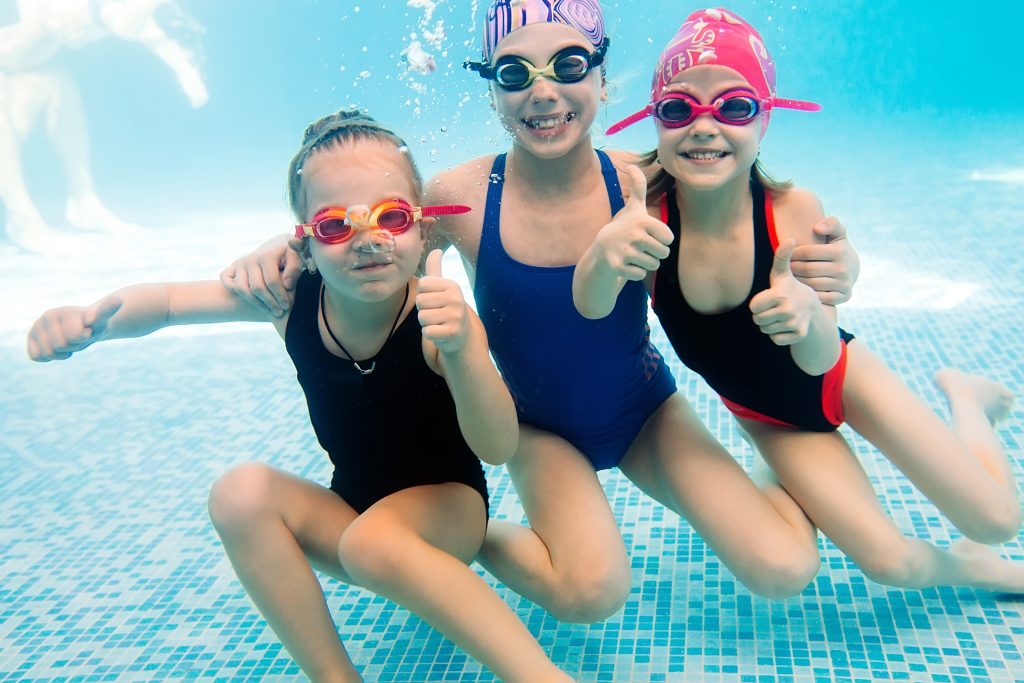
Teenagers
The Teenage years can be a rocky period, where physical changes collide with stress and anxiety. Modern life has only managed to exacerbate this further – it’s a tough time to be a teenager.
Any form of exercise during this period is vital, but swimming especially can serve as a healthy outlet for dealing with mental health issues. Swimming is often seen as one of the best forms of exercise to calm the mind. We’re still not entirely sure how or why, but a combination of the moving water and the colour blue seems to provide the perfect calming tonic. Add in the endorphins that come from exercising and the trigger of the parasympathetic nervous system that comes from being in the water, and it’s no wonder you feel remarkably relaxed after a swim.
Away from the mental side of things, swimming is also excellent for fast-changing bodies. It helps to enhance fitness and muscle tone, soothes aching joints that might be going through a growth spurt, as well as improves overall cardiovascular health.
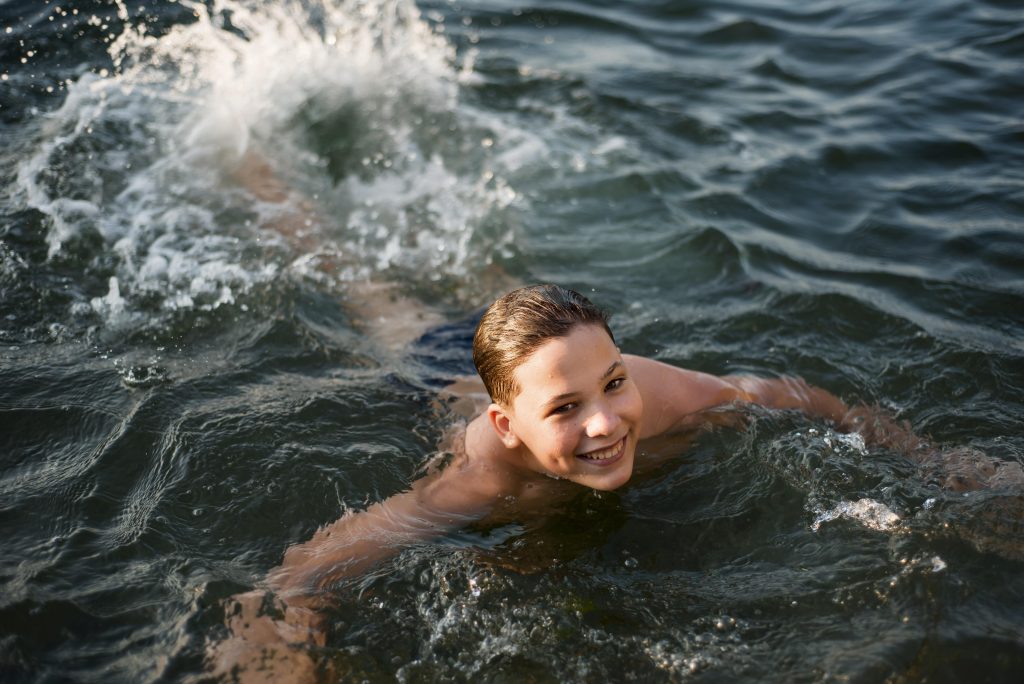
Adults
While our teenage years can feel like a trip to hell at times, adulthood doesn’t always provide the perceived relief. Stress and anxiety levels have never been higher for the adult population in the UK, and everything mentioned above applies equally to burnt-out adults staggering through the week.
This is also when we need to start thinking about our health. Our indestructible youth is now behind us, and suddenly, our back starts to ache a little, we don’t bounce back from colds quite as fast, and we begin to comprehend the importance of stretching.
Swimming is an excellent way to maintain fitness, manage weight, and reduce the risk of chronic diseases such as heart disease, stroke, and type 2 diabetes. For pregnant women, swimming can be particularly beneficial, offering a safe form of exercise that helps manage back pain and swelling.
One factor we often overlook for adults is the social outlet, whether by joining a club, attending classes, or simply interacting with others at the pool. Our lives have a habit of becoming dull, monotonous routines if we allow them and a trip to the pool twice a week can be an ideal way to break things up and stay healthy.
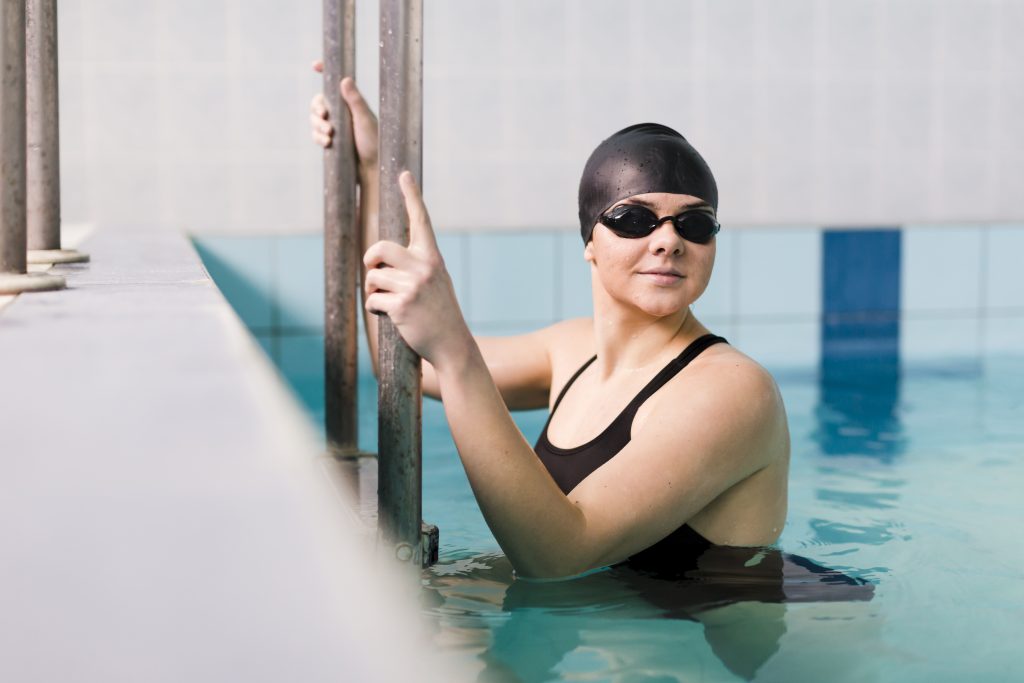
The Elderly
For the elderly, swimming is a gentle yet effective way to keep active. It reduces the risk of osteoporosis by strengthening bones, improving joint flexibility, and aiding in maintaining muscle mass and strength. It helps sleep, which often becomes an issue the older we get.
The low-impact nature of swimming is kind to ageing joints. It can alleviate symptoms of conditions like arthritis while also playing a critical role in improving balance and reducing the risk of falls – a concern that only grows as we age. It also offers a social venue, which is vital for mental health, especially in combating feelings of loneliness and isolation that can be debilitating for the elderly.
Staying active and having people around you are two of the most significant determiners of longevity. According to a 2017 report commissioned by Swim England, swimmers had a 28% lower risk of early death and a 41% lower risk of death due to heart disease and stroke compared with those who don’t swim.
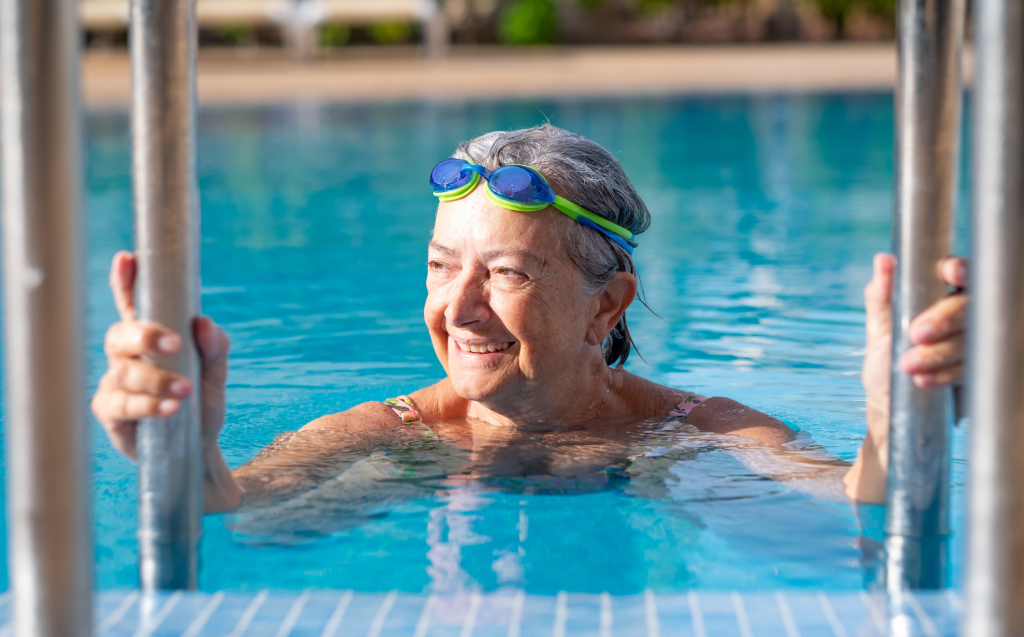
Perfect, Whatever Your Age
Whatever your age or skill level, swimming is an excellent form of exercise with countless physical, mental, and social benefits. Like many, it’s a skill best learnt young and continued throughout your life so you can continue to reap the rewards. Whether you’re looking for a guiding hand to help you introduce your toddler to the water or an adult who never got around to learning how to swim, Swimming Nature has classes to fit your needs. Even if you’re an expert swimmer who just never manages to get down to the pool anymore, find the time and dive back in. Your body and your mind will thank you.

 LOG IN
LOG IN
 CONTACT US
CONTACT US
